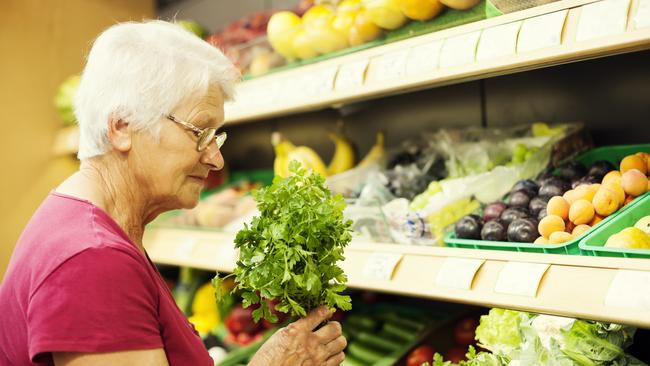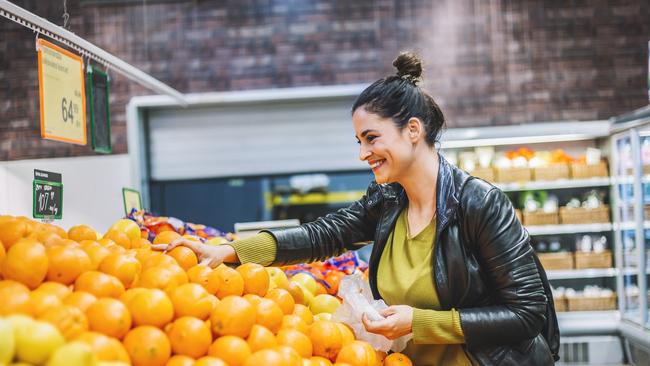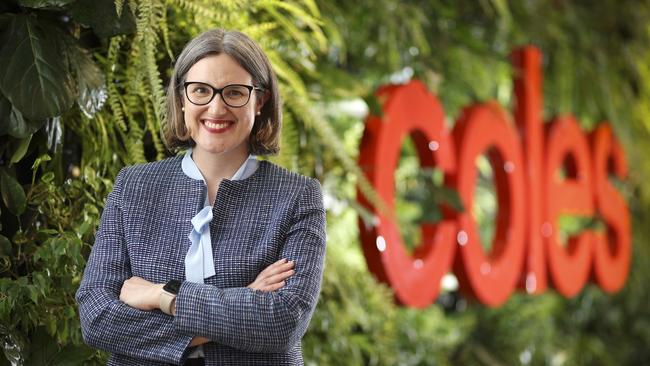Fruit growers pressured to fund supermarkets price war, Senate inquiry told
The Greens-led Senate inquiry into the power of the supermarkets has begun its public hearings, and has been told of Woolworths and Coles using their market power to squeeze farmers.

Supermarkets have been accused of pressuring fruit growers to slash their prices so they can cut prices in stores.
The Greens-led Senate inquiry into the supermarkets has been told that one unnamed supermarket giant recently boasted to shoppers it was dropping the prices on fruit from $3.50 to $2.50 per bag, but then behind closed doors pressured its fruit suppliers to heavily cut their own prices to fund the promotion.
This had seen these suppliers asked to sell their produce for $1 a bag, Senators were told on Thursday in Hobart in the first public hearings for the inquiry, which represented a significant price cut and which the farmers believed was being used to pay for the supermarket chain to publicise its lower shelf prices.
The supermarket wasn’t named, but was one of the heavyweights, Woolworths and Coles, which are the centre of the Senate inquiry into supermarket prices and market power.
The accusation was made by Jeremy Griffith, council member of the National Farmers Federation, Horticultural Council, who was the first food and grocery industry executive to give evidence before the Senate inquiry and who was followed by local Tasmanian farmers and agricultural groups who complained to the Senators about the behaviour of the large supermarket chains.
Later this month, Woolworths chief executive Brad Banducci and Coles CEO Leah Weckert will be called before the Senate inquiry, where they will be grilled about the misuse of market power, treatment of suppliers and allegations of price gouging.
Many farmers and farming groups have also lined up to appear.

Mr Griffith, who represents apple and pear growers, didn’t name the supermarket or the particular fruit that was deeply discounted by the supermarket, but said his members had seen or received letters in the last few weeks asking for them to cut their own prices and fund the promotion.
After his appearance before the Senate inquiry committee, Mr Griffith told The Australian this pressure on suppliers and requests to help fund in-store promotions was a major concern for growers.
“It is a major concern of growers, reducing prices and then they turn to suppliers and expect you to fund this, and some (suppliers) haven’t seen price increases in 15 years. That’s a massive issue for growers.”
During his address to Senators and in answering their questions, Mr Griffith drew attention to the price negotiation system that oversees the commercial relationship between Woolworths, Coles and their suppliers.
For fruit growers, which was a highly perishable commodity, prices and volumes were only negotiated in the week before harvest. This meant farmers “bear all the risk” when negotiating with the supermarket giants over the price and volumes they will sell into the chains due to the tight weekly window, Mr Griffith said.
Mr Griffith said that when supermarket chains Woolworths and Coles open discussions for prices that farmers are “immediately behind the Eight ball”.
He said all farmers and growers under current trade terms must first offer to the supermarkets prices and volumes they can offer, which gives the chains a snapshot of the entire market but for individual farmers they are “flying blind”.
Mr Griffith said supermarket executives should be held accountable for any improper or illegal actions, not just the supermarkets as corporate entities.
He said duopolies, as which exists in the supermarket sector, were never good for an economy, consumers or competition. Mr Griffith said the government should consider divestiture powers to break up the power of the major supermarket chains and force them to divest parts of their business.

Meanwhile, Tasmanian farmers did not feel there was a “sense of justice” in their ability to be paid fair prices for their produce by the major supermarkets that would let them make a decent return on the risks they take.
Nathan Calman, CEO of peak agricultural group TasFarmers, told the Senate inquiry that farmers felt the current supermarket and market dynamics were “very unbalanced” and that they were worried about their future, their businesses and the ability for the nation to grow and supply its own food.
This was driven partly by the pricing pressure on farmers.
“The overwhelming sense is they don’t feel a sense of justice in their ability to recover a fair price for the risk they take and products they produce,” Mr Calman told Senators at the first day of hearings in Hobart, Tasmania.
Mr Calman said primary producers were being hurt by rising input costs that couldn’t be then passed on to customers, which were the supermarkets.
He said his members were “too scared to speak up” when complaining about the behaviour of the supermarkets.
And it’s not just supermarket pricing that is squeezing Aussie farmers, but also their strict grading rules for agricultural products that could “ruin” and “bankrupt” them.
George Mills, a Tasmanian meat and vegetables grower, told the Senate inquiry that typically the grading systems are applied after contracts are signed.
“Grading systems suddenly apply” he said, and that can knock out shipments of vegetables for example with farmers left holding the stock.
Australian Beef Association CEO David Byard said there was a time when the suburbs all had many independent butchers but most of them had gone out of business.
The nation’s leading supermarket chains moved heavily into butchery and cheap meat in the 1960s and 1970s, offering meat at a loss in some circumstances, which put many independent butchers out of business. He said it was nonsense as claimed recently by a senior Woolworths executive that the supermarket had to buy the whole carcass from growers and lost money on parts of the animals that couldn’t be sold for food.
Mr Mills said growers didn’t get paid for large segments of the carcass whereas in the US for example there was much more transparent pricing for sections of the animal not ultimately sold to shoppers.
Fruit Growers Tasmania CEO Peter Cornish said his members appreciated the efficient system that both supermarket giants operated to deliver food to shoppers, that it was a “good system” but there could be improvements to address market failures and the imbalance of power between suppliers and the chains.




To join the conversation, please log in. Don't have an account? Register
Join the conversation, you are commenting as Logout